The general idea of nswag software is amazing.
The guys have totally ruined it though.
I'm really now thinking of dropping it for the following reasons:
overcomplicated
problematic
extremely poorly documented
unpopular
Regarding my version - "nswag@11.17.19".
My service is supposed to pass a compound structure (e.g. nested arrays) - but in recent versions it passes all of the content via the URL and here's what I mean:
Moreover, recent versions of it don't generate input classes - e.g. my API controller has action ImportEntries(ImportEntriesInput input)
nswag no longer generates input class (I mean ImportEntriesInput) - instead it just lists all of its members:
For example compare
importEntries(input: ImportEntriesInput | null | undefined): Observable<VocabularyDto> {
with
importEntries(entries: CrawlerEntryDto[] | null | undefined, vocabularyId: number | undefined, newVocabulary: boolean | undefined, typeId: number | undefined, name: string | null | undefined, notes: string | null | undefined): Observable<VocabularyDto | null> {
Maybe the guys who develop it find it okay, but I'd say this totally overcomplicates the whole approach and is too bad.
I wasn't really able to find documentation covering this part.
Anyone knows how to solve this?
Also, here's the bit where it creates the content being passes in URL:
importEntries(entries: CrawlerEntryDto[] | null | undefined, vocabularyId: number | undefined, newVocabulary: boolean | undefined, typeId: number | undefined, name: string | null | undefined, notes: string | null | undefined): Observable<VocabularyDto | null> {
let url_ = this.baseUrl + "/api/Import/ImportEntries?";
if (entries !== undefined)
entries && entries.forEach((item, index) => {
for (let attr in item)
url_ += "entries[" + index + "]." + attr + "=" + encodeURIComponent("" + item[attr]) + "&";
});
if (vocabularyId === null)
throw new Error("The parameter 'vocabularyId' cannot be null.");
else if (vocabularyId !== undefined)
url_ += "vocabularyId=" + encodeURIComponent("" + vocabularyId) + "&";
if (newVocabulary === null)
throw new Error("The parameter 'newVocabulary' cannot be null.");
else if (newVocabulary !== undefined)
url_ += "newVocabulary=" + encodeURIComponent("" + newVocabulary) + "&";
if (typeId === null)
throw new Error("The parameter 'typeId' cannot be null.");
else if (typeId !== undefined)
url_ += "typeId=" + encodeURIComponent("" + typeId) + "&";
if (name !== undefined)
url_ += "name=" + encodeURIComponent("" + name) + "&";
if (notes !== undefined)
url_ += "notes=" + encodeURIComponent("" + notes) + "&";
url_ = url_.replace(/[?&]$/, "");
let options_ : any = {
observe: "response",
responseType: "blob",
headers: new HttpHeaders({
"Content-Type": "application/json",
"Accept": "application/json",
'Authorization': 'Bearer ' + localStorage.getItem('token')
})
};
return this.http.request("post", url_, options_).flatMap((response_ : any) => {
return this.processImportEntries(response_);
}).catch((response_: any) => {
if (response_ instanceof HttpResponseBase) {
try {
return this.processImportEntries(<any>response_);
} catch (e) {
return <Observable<VocabularyDto | null>><any>Observable.throw(e);
}
} else
return <Observable<VocabularyDto | null>><any>Observable.throw(response_);
});
}
Quite appalling, isn't it?
swaggerToTypeScriptClient bit from config:
"codeGenerators": {
"swaggerToTypeScriptClient": {
"className": "{controller}ServiceProxy",
"moduleName": "",
"namespace": "",
"typeScriptVersion": 2.0,
"template": "Angular",
"promiseType": "Promise",
"httpClass": "HttpClient",
"dateTimeType": "MomentJS",
"nullValue": "Undefined",
"generateClientClasses": true,
"generateClientInterfaces": false,
"generateOptionalParameters": false,
"wrapDtoExceptions": false,
"wrapResponses": false,
"generateResponseClasses": true,
"responseClass": "SwaggerResponse",
"useTransformOptionsMethod": false,
"useTransformResultMethod": false,
"generateDtoTypes": true,
"operationGenerationMode": "MultipleClientsFromPathSegments"
"markOptionalProperties": false,
"generateCloneMethod": true,
"typeStyle": "Class",
"extensionCode": "service.extensions.ts",
"generateDefaultValues": true,
"excludedTypeNames": [],
"handleReferences": false,
"generateConstructorInterface": true,
"importRequiredTypes": true,
"useGetBaseUrlMethod": false,
"baseUrlTokenName": "API_BASE_URL",
"injectionTokenType": "InjectionToken",
"output": "../src/shared/service-proxies/service-proxies.ts"
},
